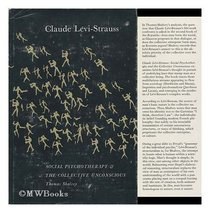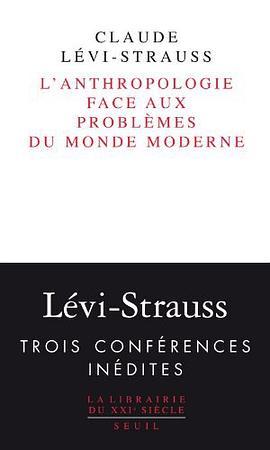

Introduction
.
Claude Lévi-Strauss is not a philosopher, but a social anthropologist.
Although prepared academically for a philosophical vocation, he has
committed himself to anthropology. His view toward philosophy, sub-
sequently, is somewhat ambiguous. In describing one of his most philo-
sophically oriented books ( The Savage Mind), he states that, despite the
possibility of formulating in it an indigenous philosophy, he was de-
termined not to set out upon this route. He seems quite convinced in
his determination not to enter philosophical realms; yet, since Lévi-
Straussian structuralism, at its core, is an epistemology and has already
produced an ethic, 1 it is doubtful that he can be considered to have
successfully extricated himself from this philosophical perspective. 2
.
One overall problem forms the core of this observation. In Lévi-
Strauss, the basic opposition out of which all primitive logic is structured
is that between nature and culture. The bridge that logic forms between
these binary terms is the priority of the collective over the individual. 3
The question that Lévi-Strauss constantly sets before himself is how the
collective is ontologically prior to the individual.
.
This problem has a long history. Its locus classicus is the debate that
takes place between Glaucon and Socrates in the second book of the
Republic. 4 The general question of the dialogue is "What is justice?"
Glaucon had maintained that the words justice and injustice have no
meaning, since individuality is ontologically prior to the collective. If
the "just" man and the "unjust" man were both provided with a talisman
that would render them invisible (the ring of Gyges), they would both take
and do whatever their (individual) natures urged upon them. Hence, for
Glaucon, individuals are intrinsically unrelated one to another, and
justice is, then, simply a conventional term, not a natural one. 5 The intrinsic nature of each particular man is to seize the advantage and to
take what he can without being punished. "Justice" applies to those con-
ventions that the weak have imposed upon the strong, to save themselves
from annihilation.
.
Socrates formulates his reply to Glaucon's empiricism by eliciting agree-
ment from Glaucon that individuality within the state best appears in
the division of labor in each society. He intends Glaucon to admit that
intersubjectivity is as primary an ingredient of man's (individual) being
as is Glaucon's idea of an isolated ego. Socrates tries to show that we
speak of an individual and his "rights" only because we understand him
in the broader context of responsibilities. Hence, individuality in Soc-
rates' notion is founded upon the division of labor, itself resting upon
intersubjective exchanges. The collective, here, is ontologically prior to
the individual:
.
. A state . . . arises, as I conceive, out of the needs of mankind; no
. one is self-sufficing, but all of us have many wants. Can any other
. origin of a state be imagined?
.
. There can be no other.
.
. Then, as we have many wants, and many persons are needed to sup-
. ply them, one takes a helper for one purpose and another for an-
. other; and when these partners and helpers are gathered together
. in one habituation the body of inhabitants is termed a State.
.
. True, he said.
.
. And they exchange with one another, and one gives, and another
. receives, under the idea that the exchange will be for their good.
.
. Very true. 6
.
Lévi-Strauss's position is similar to Plato's: in placing the collective over
the particular, he breaks with the tradition of individualism in French
philosophy running from Descartes to Sartre. The significance and
character of this break calls not only for a description of Lévi-Strauss's
accomplishment but also for critical interpretation.
具體描述
讀後感
評分
評分
評分
評分
用戶評價
相關圖書
本站所有內容均為互聯網搜索引擎提供的公開搜索信息,本站不存儲任何數據與內容,任何內容與數據均與本站無關,如有需要請聯繫相關搜索引擎包括但不限於百度,google,bing,sogou 等
© 2025 qciss.net All Rights Reserved. 小哈圖書下載中心 版权所有




















